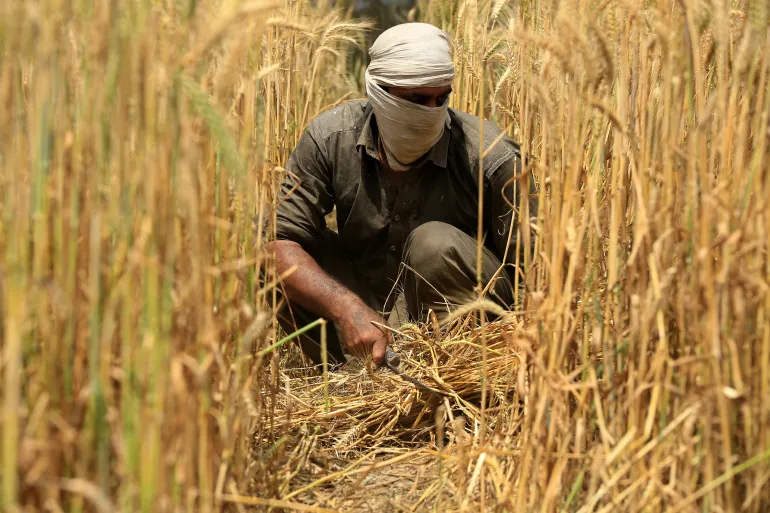Government Neglect Leaves Punjab’s Wheat Farmers in Crisis
Introduction:
The decision of the Pakistani government to stay out of the wheat market amid crashing prices has had devastating effects on Punjab’s smallholder wheat growers. This policy failure forced the majority of farmers to sell their crops to middlemen at significantly lower prices, causing widespread economic distress.
Forced Sales and Police Repression:
Smallholder wheat growers in Punjab were left with no choice but to sell their wheat at throwaway prices to middlemen. The situation worsened when some farmers protested against the government’s abandonment. These protests were met with police violence and detentions. The issue was recently highlighted in the National Assembly, with PPP chairperson Bilawal Bhutto-Zardari describing it as the ‘economic murder’ of farmers.
Lawmakers’ Reactions:
During a session in the National Assembly, lawmakers from both the treasury and the opposition expressed their concerns about the arrests and mistreatment of farmers. PPP’s Shazia Marri urged the government to meet the demands of the protesting growers and to cease the excessive force against them. PTI’s Amir Dogar pointed out that this was the first time in the country’s history that the government had refused to purchase wheat from farmers, a decision that has had dire consequences.
Economic Impact on Farmers:
The Pakistan Kissan Ittehad, an organization representing small- to medium-sized farmers across Punjab, reported that wheat farmers lost Rs1.1 trillion due to a steep drop in grain prices. Farmers were compelled to sell their harvest at around Rs3,000 per 40kg or even less, which is far below the Rs3,900 per 40kg promised by the government. Although the government could not have purchased the entire tradable surplus of 10 million tons this year, its presence in the market could have prevented the price crash.
Policy Failures and Imports:
Punjab’s farmers are facing severe hardships exacerbated by policy failures, including the import of over 3.4 million tons of wheat shortly before the bumper harvest. These imports, directed by the caretaker government, allowed traders to profit at the expense of both farmers and urban consumers, who paid higher prices for low-quality imported wheat.
Probe into Wheat Imports:
Prime Minister Shehbaz Sharif quickly established a probe committee to investigate the decision to import wheat when the country had sufficient stocks from the previous harvest and was expecting a record output. However, media reports suggest that the terms of the inquiry were later altered, preventing it from examining the caretaker administration’s role in allowing heavy imports. The committee’s mandate is now restricted to investigating imports during March.
Questions Remain Unanswered:
The reluctance of the Prime Minister to probe the caretaker government’s role in wheat imports remains a mystery, especially given the negative impact of this crisis on the ruling PML-N’s standing among farmers. The formation of the probe committee appears to be an attempt to cover up the issue unless it is allowed to conduct a thorough investigation and assign responsibility for the reckless imports.
Conclusion:
The government’s decision to stay out of the wheat market and the subsequent policy failures have caused significant economic damage to Punjab’s smallholder wheat growers. The forced sales, police repression, and questionable wheat imports have highlighted the need for a thorough investigation to ensure accountability and prevent such crises in the future.

